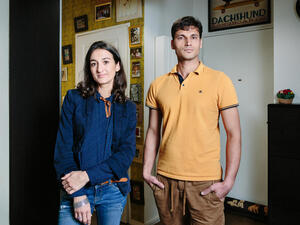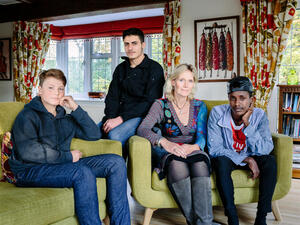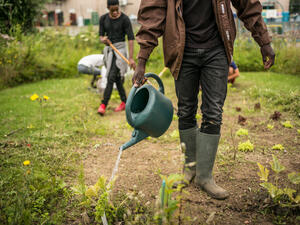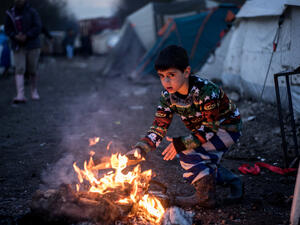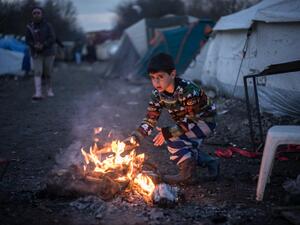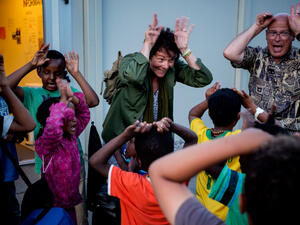Transfer of residents out of "the Jungle" site in Calais, France
Transfer of residents out of "the Jungle" site in Calais, France
The informal camp for refugees and migrants in Calais known as "the Jungle" is not an environment fit for human habitation. UNHCR has long recommended its closure and its replacement by proper accommodation for asylum seekers and migrants. Yesterday, the French authorities transferred some 1,900 people voluntarily out of "The Jungle". Many queued since early in the morning to board buses taking them to accommodation centres all over France. No serious incidents were reported and UNHCR was present throughout, giving information on legal rights and helping to identify people with special needs, including several hundred unaccompanied children.
UNHCR has urged that special arrangements be made to ensure the safety and welfare of these children, and that these happen before the site is closed. This is important so that children don't move on to other destinations and risk becoming exploited by human traffickers or end up living on the streets without support. Measures, including family tracing, must be taken to reunite children with relatives in Europe, when determined in the best interests of the child, such as the 200 unaccompanied children that have left Calais for the United Kingdom.
In this regard, UNHCR welcomes the transfer of more than 100 unaccompanied children from Calais to the United Kingdom under the Dublin Regulation since 17 October, as well as the United Kingdom's commitment to transfer a substantial number of unaccompanied children under the so-called 'Dubs Amendment'. Despite the challenging environment, it is critically important that procedures and safeguards are in place to ensure that any transfers made to the UK or to any other country are in accordance with the child's best interests and that once in the UK, appropriate care arrangements are available. This is not currently the case. The United Kingdom cannot the only solution for the unaccompanied children in Calais.
The authorities have indicated that all the remaining children will be moved to a site next to "The Jungle" known as "camp d'accueil provisoire (CAP)", where they will be housed in prefabs (containers) and they will be in a safe environment. In the coming days, it is expected that they will be interviewed in order to determine their best interests. UNHCR has a child protection expert, protection staff and interpreters on the ground ready to support case processing and the implementation of best interests procedures. In such an environment, it should be possible to determine the best solution for each individual child and to ensure that their best interests are given primary consideration.
The situation in Calais has highlighted the need for greater responsibility sharing and coordination between EU Member States to address current gaps in asylum and reception, and increase solidarity measures such as relocation and other legal avenues for people to reach safety. A genuinely collective and far-reaching European response is required, based on the principles of humanity, access to protection, solidarity and responsibility-sharing, both within the EU but also with countries outside the EU.
UNHCR remains ready to further assist France, the United Kingdom and other EU Member States, in finding practical and comprehensive solutions.
For more information on this topic, please contact:
- In Calais, Céline Schmitt, [email protected], +33 6 23 16 11 78
- In London, Laura Padoan, [email protected], +44 777 556 6127
- In London, Andrej Mahecic, [email protected], +44 788 0230 985
- In Geneva, William Spindler, [email protected], +41 79 217 3011


